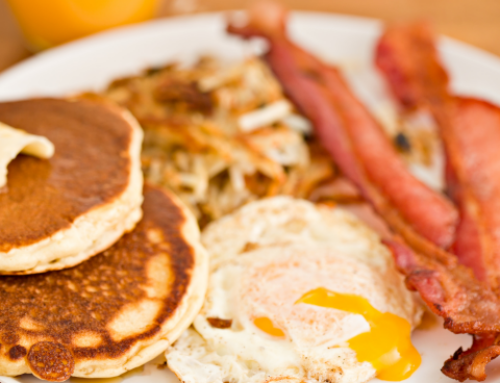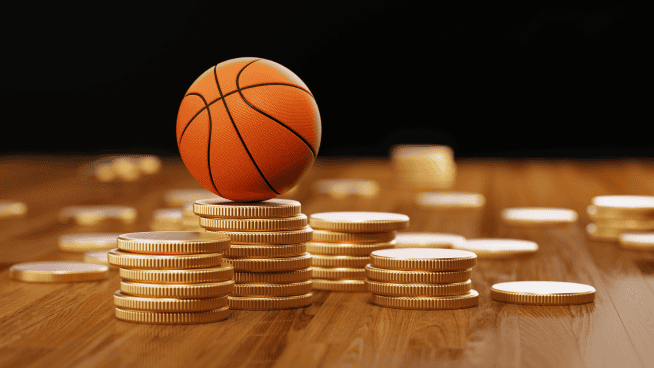People often drink diet soda because they want to cut down on their calories, but a new study has found that there’s virtually no difference in total daily calorie consumption between diet soda drinkers and regular soda drinkers.
When you consider the fact that a 20-ounce Coca-Cola contains 288 calories and a 20-ounce Diet Coke contains zero calories, that’s a startling finding.
The study, which was published in the International Journal of Obesity, sought to discover how four different types of drinks affected young men’s calorie consumption and blood sugar levels. The drinks tested were sweetened with either sugar, Stevia, aspartame or monk fruit. Sugar is what’s used to sweeten most traditional sodas. One gram of sugar contains four calories. Stevia is a natural sweetener that contains no calories and has roughly 250 to 300 times the sweetness of sugar. Aspartame is a popular artificial sweetener (often marketed under the name “Equal”) used in many diet sodas. Monk fruit extract is a natural sweetener made from monk fruit. It’s about 150 to 200 times sweeter than sugar and contains zero calories.
In the study, thirty healthy male participants randomly consumed one of the four drinks each day until they’d tried them all. Participants ate a standardized breakfast before drinking the beverages at mid-morning. An hour later they were provided with a lunchtime meal and asked to eat until they were comfortably full. Blood glucose and insulin levels were monitored closely. Participants also kept a food diary of what they ate during the rest of the day.
At the end of the study, researchers found “no difference in the total daily energy intake across all four treatments, meaning that overall participants consumed the same amount of energy [calories] during the course of a day.”
Essentially, those who drank the calorie-free drinks make up those calories elsewhere throughout the day. “Participants either reduced meal intake after the sucrose-sweetened drink or ate significantly more at lunchtime and the rest of the day to compensate for the three calorie-free drink options,” Science Daily wrote.
RELATED: How Can Zero-Calorie Diet Soda Be Bad For You?
“The energy ‘saved’ from replacing sugar with non-nutritive sweetener was fully compensated for at subsequent meals in the current study, hence no difference in total daily energy intake was found between the four treatments,” explained lead author Siew Ling Tey.
Scientists are still grappling to explain the reasons behind this phenomenon.
With their sweet taste, artificial sweeteners can trick your brain into thinking you’re ingesting actual sugar. When your body thinks it’s getting sugar, it expects to receive calories. “The sweet taste of diet soda may be a stimulus for the brain to say, ‘incoming calories, let’s eat,'” says Leslie Bonci, director of sports nutrition at the University of Pittsburgh Medical Center.
When it doesn’t actually get those calories, your body gets confused. This can lead to strong rebound cravings and a biological urge to find those “missing” calories somewhere else. “Less calories in your glass may lead to more on your plate,” Bonci says.
Artificial sweeteners may also change the way foods taste. “Our taste buds calibrate to what we’re used to,” says Ryan Andrews, nutrition coach at Precision Nutrition. “If someone is drinking highly sweetened diet soda each day, then other naturally sweet foods, such as fruit, likely won’t taste as sweet or be appealing. Then they gravitate toward even more highly processed and sugary foods in their diet.”
Studies have shown that diet soda drinkers’ brains actually look different than those of non diet soda drinkers. One study found that as participants’ diet soda consumption increased, an area of their brain known as the “caudate head” diminished in activity. The caudate head plays a role in food motivation and satiety, helping to send the signal that the sweet taste of sugar equates to incoming calories. If this part of the brain isn’t active, your body won’t help you naturally regulate your consumption of sugary snacks. Decreased activity in this area has been linked with an increased risk of obesity.
If you’re really looking for a healthier beverage, drop the artificially sweetened stuff and go with water. Your body will thank you.
RELATED: 11 Easy Tricks For Drinking More Water
RECOMMENDED FOR YOU
MOST POPULAR
People often drink diet soda because they want to cut down on their calories, but a new study has found that there’s virtually no difference in total daily calorie consumption between diet soda drinkers and regular soda drinkers.
When you consider the fact that a 20-ounce Coca-Cola contains 288 calories and a 20-ounce Diet Coke contains zero calories, that’s a startling finding.
The study, which was published in the International Journal of Obesity, sought to discover how four different types of drinks affected young men’s calorie consumption and blood sugar levels. The drinks tested were sweetened with either sugar, Stevia, aspartame or monk fruit. Sugar is what’s used to sweeten most traditional sodas. One gram of sugar contains four calories. Stevia is a natural sweetener that contains no calories and has roughly 250 to 300 times the sweetness of sugar. Aspartame is a popular artificial sweetener (often marketed under the name “Equal”) used in many diet sodas. Monk fruit extract is a natural sweetener made from monk fruit. It’s about 150 to 200 times sweeter than sugar and contains zero calories.
In the study, thirty healthy male participants randomly consumed one of the four drinks each day until they’d tried them all. Participants ate a standardized breakfast before drinking the beverages at mid-morning. An hour later they were provided with a lunchtime meal and asked to eat until they were comfortably full. Blood glucose and insulin levels were monitored closely. Participants also kept a food diary of what they ate during the rest of the day.
At the end of the study, researchers found “no difference in the total daily energy intake across all four treatments, meaning that overall participants consumed the same amount of energy [calories] during the course of a day.”
Essentially, those who drank the calorie-free drinks make up those calories elsewhere throughout the day. “Participants either reduced meal intake after the sucrose-sweetened drink or ate significantly more at lunchtime and the rest of the day to compensate for the three calorie-free drink options,” Science Daily wrote.
RELATED: How Can Zero-Calorie Diet Soda Be Bad For You?
“The energy ‘saved’ from replacing sugar with non-nutritive sweetener was fully compensated for at subsequent meals in the current study, hence no difference in total daily energy intake was found between the four treatments,” explained lead author Siew Ling Tey.
Scientists are still grappling to explain the reasons behind this phenomenon.
With their sweet taste, artificial sweeteners can trick your brain into thinking you’re ingesting actual sugar. When your body thinks it’s getting sugar, it expects to receive calories. “The sweet taste of diet soda may be a stimulus for the brain to say, ‘incoming calories, let’s eat,'” says Leslie Bonci, director of sports nutrition at the University of Pittsburgh Medical Center.
When it doesn’t actually get those calories, your body gets confused. This can lead to strong rebound cravings and a biological urge to find those “missing” calories somewhere else. “Less calories in your glass may lead to more on your plate,” Bonci says.
Artificial sweeteners may also change the way foods taste. “Our taste buds calibrate to what we’re used to,” says Ryan Andrews, nutrition coach at Precision Nutrition. “If someone is drinking highly sweetened diet soda each day, then other naturally sweet foods, such as fruit, likely won’t taste as sweet or be appealing. Then they gravitate toward even more highly processed and sugary foods in their diet.”
Studies have shown that diet soda drinkers’ brains actually look different than those of non diet soda drinkers. One study found that as participants’ diet soda consumption increased, an area of their brain known as the “caudate head” diminished in activity. The caudate head plays a role in food motivation and satiety, helping to send the signal that the sweet taste of sugar equates to incoming calories. If this part of the brain isn’t active, your body won’t help you naturally regulate your consumption of sugary snacks. Decreased activity in this area has been linked with an increased risk of obesity.
If you’re really looking for a healthier beverage, drop the artificially sweetened stuff and go with water. Your body will thank you.
RELATED: 11 Easy Tricks For Drinking More Water











